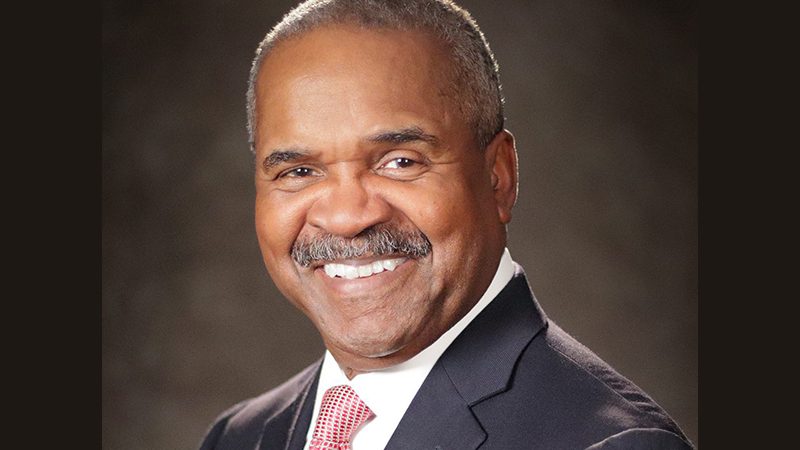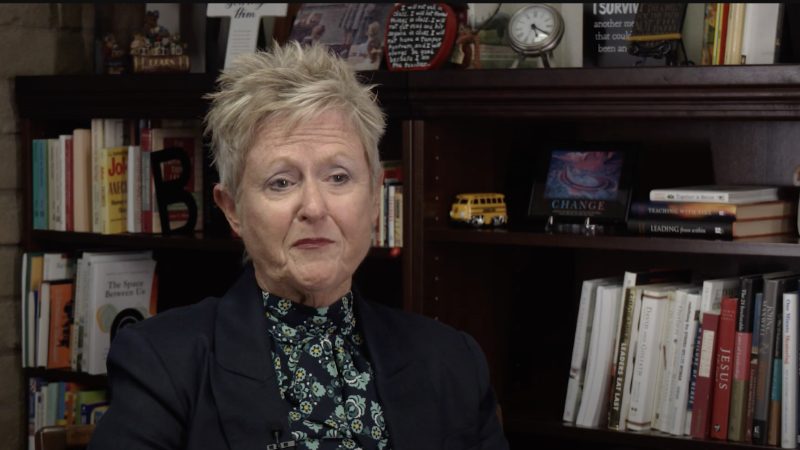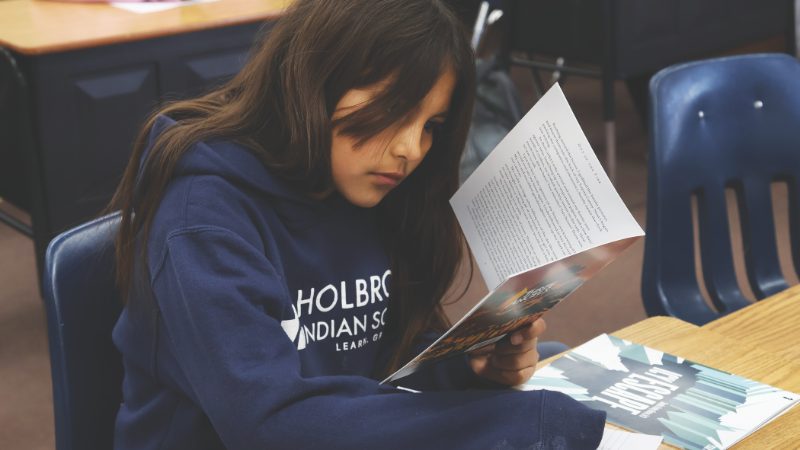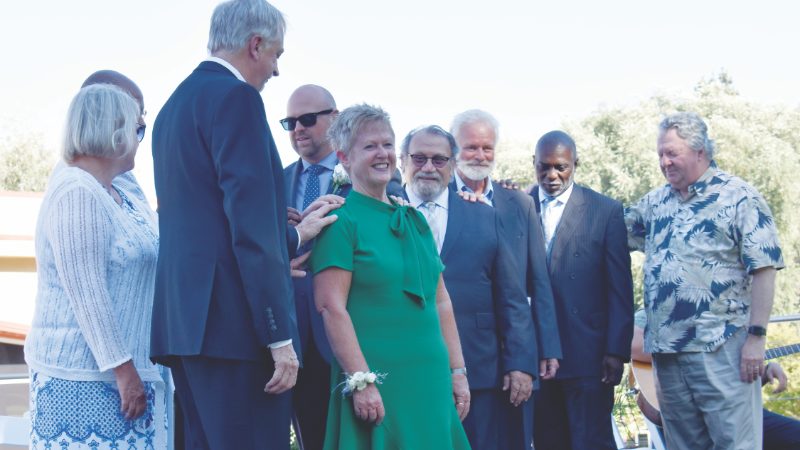I am on a self-care journey that has had its hills and valleys, its highs and lows, over the years. When I discussed how I was trying to better take care of myself with my girlfriend over dinner some time ago, she said, “You can’t pour from an empty cup.” Her words were transformational for me.
My cup was nearly empty, and every time there was an ounce or two of water in my cup, I’d pour it into someone else’s cup. I am a born caregiver. I don’t say that in an arrogant way. I do believe it’s one of the gifts God gave to me. I like to take care of other people and make sure they have what they need to thrive. From my child to my elderly parents to my late spouse, I was the designated caregiver, and I still look back on those very different caregiving roles with gratitude.
But somewhere along the way, I forgot to take care of me. I poured myself into my work, family, and friends until my cup ran dry.
I have learned a few helpful things that work for me along the way, some of which I have put into practice only recently and two very important bullet points about self-care.
First, self-care is not selfish. It was counterintuitive for me to believe that taking time just for me—to read, to take a walk at the beach, to get a massage or pedicure, to schedule alone time—wasn’t selfish. I have a to-do list a mile long. I have responsibilities. But I can’t pour from an empty cup. And taking care of me, physically, emotionally, as well as spiritually, truly fills my cup. I no longer feel selfish when I block out a few hours of me time or take an actual vacation or unplug from all my devices.
Secondly, self-care is biblical. While the exact term “self-care” is not used in the Bible, God’s Word is clear that we are to take time for ourselves in order to draw near to Him and take care of ourselves. Jesus practiced self-care. “But he would withdraw to desolate places and pray” (Luke 5:16, ESV). Jesus understood the power of having alone time to talk to His Father. He understood the need for rest, for taking care of our physical bodies, for the practice of gratitude, and the list goes on.
When I took on the task of learning all I could about self-care, I read everything I could find online about mental health and the importance of self-care. Mornings would find me scrolling my news feeds and gathering articles like “10 self-care activities that help reduce stress—and cost little to no money”1 and “23 Tiny Ways to Improve your Mental Health in 2023.”2 I am very comfortable with lists, although remembering 23 things or even 10 things seemed like too much work.
“Taking a Mental-Health Day? There’s a Right Way to Do It”3 was a good article. So was “3 morning habits to help you be happier and more productive at work, according to psychologists.”4 It’s not hard to remember three things. One of my favorite articles was by Dr. Phil McGraw and Dr. John Whyte: “Living on a prayer? How attending worship can improve your physical and mental health.” The premise, backed by science, is that people who attend worship services regularly tend to have more close friendships, which can in turn lead to better health outcomes. The article concludes with this statement:
“You don't have to join your nearest house of worship to enjoy good health. Your faith or sense of purpose, if any, is on you. But health is as much a matter of the soul as of the body. If you have a sense of faith, cultivate it. If you don't, seek out places or situations that bring you a sense of connection and hope through meaningful relationships.”5
Much of what I read confirmed what I already knew but was struggling to practice in my own life.
After conducting my own informal survey of how several of my friends, family, and co-workers practice self-care, I came up with a list of way more than 23 things to practice for a meaningful self-care journey. Here’s a sampling of a just a few of them from men, women, and children I know and love, from ages eight to eighty:
- Get a cat or a dog—there’s nothing like a pet to reduce stress.
- Take naps.
- Daily walks (and if you can walk at a beach, that’s the best).
- Listen to audio books.
- Build things; breathe; listen to your body.
- Work in the dirt! There's something about weeding, pruning, watering, or replanting that grounds us to what God gave at creation. (Gardening was a theme that was repeated by men and women.)
- Staying engaged mentally-socially-physically-spiritually (from an 80-year-old retired church administrator).
- My self-care therapies are music and gardening. I sing praises in my head until I’m at peace.
- I try to keep stimulating my mind on a regular basis to be a lifelong learner. I take a class or attend a seminar.
- Talking with my children and grandchildren is good for my soul.
- Playing word games helps me relax.
- Getting enough sleep and getting a massage every other week—it’s how I can do my very physical job and keep doing it (from a court reporter for a superior court judge).
- I don’t rush. I take my time on stuff I enjoy, like eating, doing homework so I do it right, and doing fun stuff like building Legos. I take my time to get each piece perfect so I don’t have to go back and rebuild. I try to eat healthy so I can be strong like my mom when I grow up. I love to read to grow my brain (from my 9-year-old granddaughter).
This list and these individuals inspire me. I asked for their “Top Three” self-care practices and received way more than I had asked for. My own personal list grew to 14 items by the time I wrote everything down that I was currently doing and added the items I wanted to incorporate into my self-care routine.
My top three?
Practicing gratitude—every day! A powerful antidote to grief is gratitude, and grieving has been part of my journey these past two years. Expressing gratitude has helped ease some of the pain. I try to list five things each day I am grateful for. Today, it was my juicy fresh peach at breakfast, the birds singing in the backyard early this morning, a photo on the fridge of my granddaughters, my daily walk with my neighbor and her dog, and the Scrabble game I played this evening with my daughter-in-law. Simple pleasures that I’ve become more intentional about noticing and being thankful for.


Rest—getting 7-8 hours of sleep every night is essential for my well-being. No phone screens or TV an hour before bedtime. (Well, that’s the goal!) I practice breathing and quieting my often “busy” mind.

Music—playing guitar and piano, singing praise songs and old hymns, heals my soul. Words and phrases of hymns pop into my head at the right moment, just as I need them. “Was blind, but now I see.” “In times like these you need a Savior, in times like these you need an anchor” and “O Thou who changest not, abide with me.”
Music has always been there for me—during times of joy and times of great sorrow. It is a huge part of my self-care journey. I cannot remember the last time my cup has been empty in recent months, but I know what to do and what to sing when it is.
Fill my cup, Lord.
I lift it up, Lord.
Come and quench this thirsting of my soul.
Bread of Heaven, feed me 'til I want no more.
Fill my cup, fill it up and make me whole.
_____________________________
Connie Vandeman Jeffery is associate director of communication and community engagement of the Pacific Union Conference.
1. https://www.cnbc.com/2022/12/17/here-are-10-cheap-or-totally-free-self-care-activities.html
2. https://www.huffpost.com/entry/improve-mental-health-2023_l_63bc30dce4b0ae9de1c01d01
3. https://www.wsj.com/articles/taking-a-mental-health-day-theres-a-right-way-to-do-it-11652225969
Llena mi copa, Señor
Por Connie Vandeman Jeffery
Estoy en una jornada de autocuidado que ha tenido sus colinas y valles, lo mismo que sus altibajos, a lo largo de los años. Cuando hablé sobre cómo estaba tratando de cuidarme mejor con una amiga durante la cena hace algún tiempo, ella medijo: «No se puede beber de una taza vacía». Sus palabras fueron transformadoras para mí.
Mi taza estaba casi vacía y cada vez que había una o dos onzas de agua en mi taza, la vertía en la taza de otra persona. Soy una cuidadora innata. No lo digo de una manera arrogante. Creo que es uno de los dones que Dios me dio. Me gusta cuidar de otras personas y asegurarme de que tengan lo que necesitan para prosperar. Desde mi hijo hasta mis padres ancianos y mi difunto cónyuge, yo era la cuidadora designada, y todavía considero esos muy diferentes roles de cuidado con gratitud.
Pero en algún momento en mi jornada, olvidé cuidar de mí misma. Me dediqué a mi trabajo, a mi familia y a mis amigos hasta que mi taza estuvo vacía.
He aprendido algunas cosas útiles que funcionan para mí, algunas de las cuales he puesto en práctica recientemente y dos puntos muy importantes sobre el cuidado personal.
Primero, el autocuidado no es egoísmo. Era contradictorio para mí creer que tomar un tiempo solo para mí, leer, dar un paseo por la playa, recibir un masaje o una pedicura, programar un tiempo a solas, no era ser egoísta. Tengo una lista de tareas pendientes de una milla de largo. Tengo responsabilidades. Pero no puedo beber de una taza vacía. He descubierto que cuidarme, física, emocional y espiritualmente, realmente llena mi copa. Ya no me siento egoísta cuando bloqueo unas horas de mi tiempo o tomo unas vacaciones o me desconecto de todos mis dispositivos.
En segundo lugar, el autocuidado es bíblico. Si bien el término exacto «cuidado personal» no aparece en la Biblia, la Palabra de Dios es clara en que debemos tomar tiempo para nosotros mismos. para acercarnos a él y preocuparnos por nosotros mismos. Jesús practicó el autocuidado. «Pero él se retiraba a lugares desolados y oraba» (Lucas 5:16). Jesús entendió el poder de tomar tiempo a solas para hablar con su Padre. Entendió la necesidad de descansar, de cuidar nuestro cuerpo, de la práctica de la gratitud, y la lista continúa.
Cuando asumí la tarea de aprender todo lo que pude sobre el autocuidado, leí todo lo que pude encontrar en línea sobre la salud mental y la importancia del autocuidado. Las mañanas me encontraban desplazándome por mis fuentes de noticias y recopilando artículos como «10 actividades de autocuidado que ayudan a reducir el estrés y cuestan poco o nada de dinero».1 y «23 pequeñas maneras de mejorar su salud mental en 2023».2 Me siento muy cómoda con esas listas, aunque recordar 23 cosas o incluso 10 de ellas parecía demasiado trabajo.
«¿Tomar un día de salud mental? Hay una manera correcta de hacerlo»,3 es un buen artículo. También lo son «3 hábitos matutinos para ayudarte a ser más feliz y más productivo en el trabajo».4 No es difícil recordar tres cosas. Uno de mis artículos favoritos es del Dr. Phil McGraw y el Dr. John Whyte: «¿Vivir de la providencia? Cómo asistir a un culto puede mejorar su salud física y mental». La premisa, respaldada por la ciencia, es que las personas que asisten regularmente a los cultos religiosos tienden a tener amistades más cercanas, lo que a su vez puede conducir a mejores resultados de salud. El artículo concluye con esta declaración:
«No tienes que unirte a una casa de culto para disfrutar de buena salud. Tu fe o sentido de propósito, si lo hay, está en ti. Pero la salud es tanto una cuestión del alma como del cuerpo. Si tienes un grado de fe, cultívalo. Si no lo haces, busca lugares o situaciones que te traigan un sentido de conexión y esperanza a través de relaciones significativas».5
Mucho de lo que leí confirmó lo que ya sabía, pero estaba luchando por practicarlo en mi vida.
Después de realizar una encuesta informal sobre cómo varios de mis amigos, familiares y compañeros de trabajo practican el autocuidado, surgió una lista de más de 23 cosas para un viaje significativo de autocuidado. Aquí hay una muestra de algunas sugerencias de hombres, mujeres y niños que conozco y amo, de ocho a ochenta años:
- Consigue un gato o un perro, no hay nada como una mascota para reducir el estrés.
- Toma siestas.
- Caminatas diarias (y si puedes caminar en una playa, mucho mejor).
- Escucha audiolibros.
- Construye cosas; respira; escucha a tu cuerpo.
- ¡Trabaja en la tierra! Hay algo acerca de desmalezar, podar, regar o replantar que nos arraiga en lo que Dios nos proveyó en la creación. (La jardinería ha sido una actividad compartida por hombres y mujeres).
- Mantenerte comprometido mental, social, física y espiritualmente (de un administrador de la iglesia jubilado de 80 años).
- Mis terapias de autocuidado son la música y la jardinería. Canto alabanzas en mi cabeza hasta que estoy en paz.
- Trato de seguir estimulando mi mente de manera regular para ser un aprendiz de por vida. Tomo una clase o asisto a un seminario.
- Hablar con mis hijos y nietos es bueno para mi alma.
- Los juegos de palabras me ayudan a relajarme.
- Dormir lo suficiente y recibir un masaje cada dos semanas: es la forma como puedo hacer mi trabajo físico y seguir haciéndolo (de un taquígrafo de la corte para un juez de la corte superior).
- No me apresuro. Me tomo mi tiempo en cosas que disfruto, como comer, hacer bien la tarea, y hacer cosas divertidas como construir con Legos. Tomo mi tiempo para conseguir cada pieza perfecta para no tener que reconstruir. Trato de comer sano para poder ser fuerte cuando crezca, como mi madre. Me encanta leer para hacer crecer mi cerebro (de mi nieta de 9 años).
Esa lista y esas personas me inspiran. Pregunté por sus «Tres Principales» prácticas de autocuidado y recibí mucho más de lo que había pedido. Mi propia lista personal creció a 14 elementos cuando escribí todo lo que estaba haciendo actualmente y agregué los elementos que quería incorporar a mi rutina de cuidado personal.
¿Mis tres primeras?
Practicar la gratitud—¡Todos los días! Un poderoso antídoto contra el dolor es la gratitud y el duelo ha sido parte de mi peregrinaje en los últimos dos años. Expresar gratitud me ha ayudado a aliviar parte del dolor. Trato de enumerar cinco cosas por las que estoy agradecida cada día. Hoy, fue mi jugoso melocotón en el desayuno, los pájaros cantando temprano en el patio, una foto en la nevera de mis nietas, mi paseo diario con mi vecina y su perro, y el juego de Scrabble que jugué esta noche con mi nuera. Sencillos placeres en los que me he vuelto más intencional al notar y agradecer.


Reposo—Dormir de 7 a 8 horas cada noche es esencial para mi bienestar. No hay celular o TV una hora antes de acostarme. (Por lo menos, ¡ese es mi objetivo!) Practico respirar profundo y calmar mi mente a menudo «ocupada».

Música—Tocar la guitarra y el piano, cantar cantos de alabanza y viejos himnos, reconforta mi alma. Palabras y frases de himnos aparecen en mi cabeza en el momento adecuado, justo cuando los necesito. «Estaba ciego, pero ahora veo». «En tiempos como estos necesitas un Salvador, en tiempos como estos necesitas un ancla» y «Oh Tú que no cambias, permanece conmigo».
La música siempre me ha hecho compañía, en momentos de alegría y de gran tristeza. Es una gran parte de mi recorrido de autocuidado. No puedo recordar la última vez que mi taza ha estado vacía en los últimos meses, pero sé qué hacer y qué cantar cuando lo está.
Llena mi copa, Señor.
La levanto, Señor.
Ven y sacia esta sed de mi alma.
Pan del cielo, dame de comer hasta que me sacie.
Llena mi taza, llénala y hazme completa.
_____________________________
Connie Vandeman Jeffery es directora asociada de comunicación y participación comunitaria de la Pacific Union Conference.
1 https://www.cnbc.com/2022/12/17/here-are-10-cheap-or-totally-free-self-care-activities.html
2 https://www.huffpost.com/entry/improve-mental-health-2023_l_63bc30dce4b0ae9de1c01d01
3 https://www.wsj.com/articles/taking-a-mental-health-day-theres-a-right-way-to-do-it-11652225969






